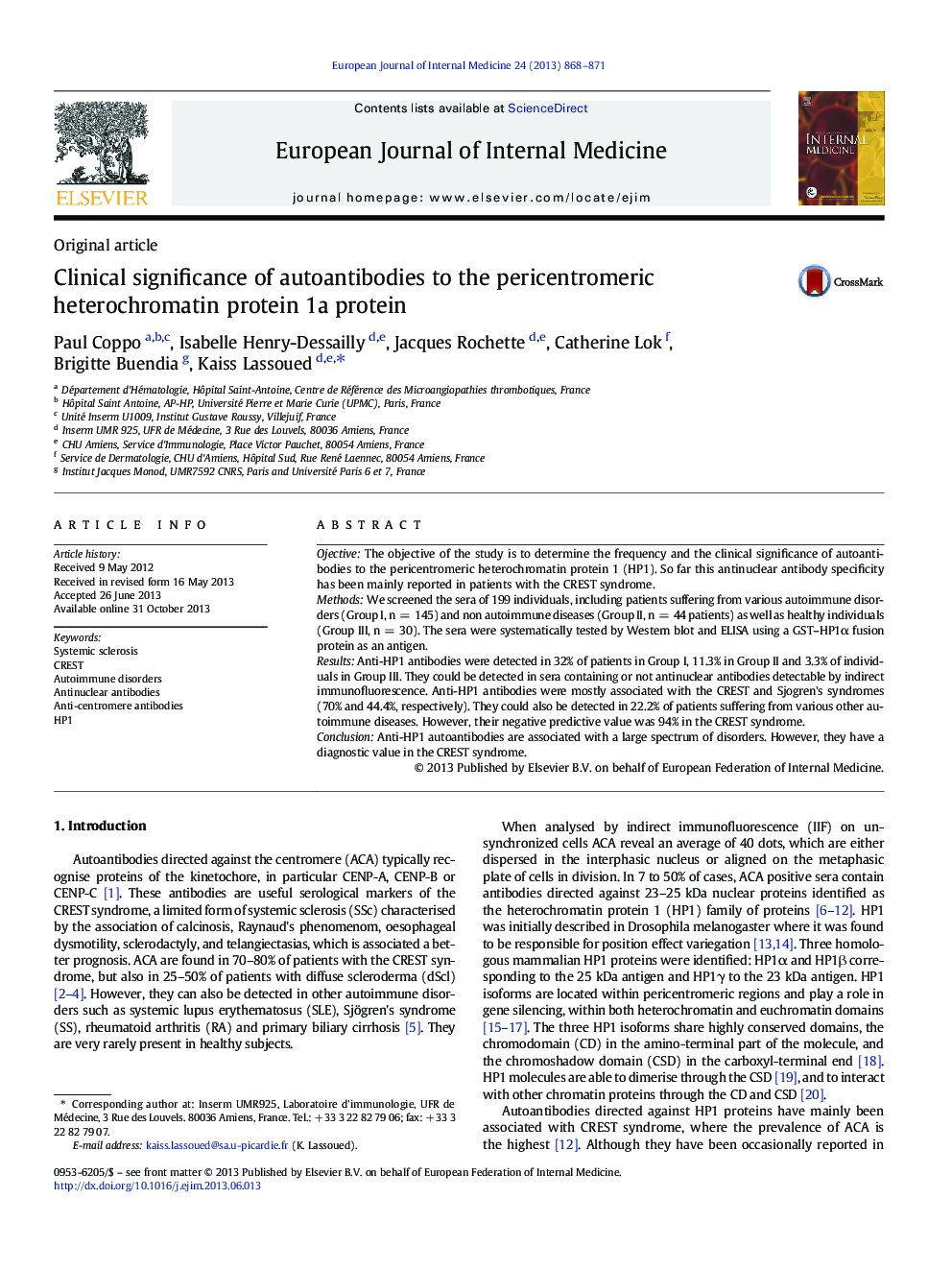| Article ID | Journal | Published Year | Pages | File Type |
|---|---|---|---|---|
| 3466381 | European Journal of Internal Medicine | 2013 | 4 Pages |
•Anti-HP1 antibodies are mostly observed in the CREST and Sjogren's syndromes.•They have a negative predictive value of 94% for the diagnosis of CREST syndrome.•Their prevalence in other autoimmune disorders is similar to this of healthy people.
OjectiveThe objective of the study is to determine the frequency and the clinical significance of autoantibodies to the pericentromeric heterochromatin protein 1 (HP1). So far this antinuclear antibody specificity has been mainly reported in patients with the CREST syndrome.MethodsWe screened the sera of 199 individuals, including patients suffering from various autoimmune disorders (Group I, n = 145) and non autoimmune diseases (Group II, n = 44 patients) as well as healthy individuals (Group III, n = 30). The sera were systematically tested by Western blot and ELISA using a GST–HP1α fusion protein as an antigen.ResultsAnti-HP1 antibodies were detected in 32% of patients in Group I, 11.3% in Group II and 3.3% of individuals in Group III. They could be detected in sera containing or not antinuclear antibodies detectable by indirect immunofluorescence. Anti-HP1 antibodies were mostly associated with the CREST and Sjogren's syndromes (70% and 44.4%, respectively). They could also be detected in 22.2% of patients suffering from various other autoimmune diseases. However, their negative predictive value was 94% in the CREST syndrome.ConclusionAnti-HP1 autoantibodies are associated with a large spectrum of disorders. However, they have a diagnostic value in the CREST syndrome.
